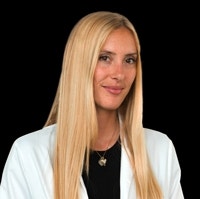What are multivitamins?
It is often believed that multivitamin supplements are the solution to all evil. The word "multi" combined with the term "vitamins" immediately makes us think of a variety of micronutrients, one for each problem we may encounter. The solution to fatigue, excess weight, suboptimal performance, recovery, poor results in the gym. We take a multivitamin and that's it. But is it really so?
 The multivitamin is a supplement containing a complete pool of vitamins (and often minerals), useful for the body: our body, in fact, needs vitamins to properly perform numerous biological functions (ie necessary for life). These substances, which unlike carbohydrates, Protein and fats do not provide calories, are called "micronutrients" precisely because they are needed in less quantities and not because they are less important!
The multivitamin is a supplement containing a complete pool of vitamins (and often minerals), useful for the body: our body, in fact, needs vitamins to properly perform numerous biological functions (ie necessary for life). These substances, which unlike carbohydrates, Protein and fats do not provide calories, are called "micronutrients" precisely because they are needed in less quantities and not because they are less important!
Vitamins and minerals are contained in many foods, and in particular in fruit and vegetables. A varied and balanced diet certainly provides us with a good amount of micronutrients, even if there are situations in which this statement is not necessarily true.
Who and when you need a multivitamin
As pointed out above, although it is possible to take micronutrients with the diet alone, it is necessary to stop and do some useful reflections. Some individuals may in fact have needs that are difficult to satisfy , follow a low- calorie diet (and therefore by definition "poor" in nutrients) or particular diets , do a lot of physical activity or simply not eat fruit and vegetables for personal taste. In these cases you are at greater risk of nutritional deficiencies , and it is therefore good to make sure you reach a good amount of vitamins and minerals also by taking a multivitamin, a certainly comfortable and effective choice.
Another important consideration is the one related to the quality of the foods on our table. Today's foods, and especially fruit and vegetables, are no longer what they used to be. The impoverishment of agricultural land as a result of intensive cultivation, pollution and the seasonality that begins to fail make fruit, vegetables and vegetables objectively "poorer", potentially making integration useful.
As always, science tells us, however, that taking a multivitamin (as well as other food supplements) is really useful in case of a deficiency , so if we do not reach the minimum quantity that the body asks us to function. Who can really benefit from the use of multivitamins falls into one of the following cases:
- Who has high needs due to particular situations or moments in life, such as in the case of pregnancy, breastfeeding or illness;
- Those who follow a low-calorie diet: by eating less it is easier not to get everything we need;
- Those who do not consume sufficient quantities of fruit and vegetables (and remember that 5 daily portions are recommended)
- Those who live in particularly polluted environments, such as the center of large cities and metropolises;
- Who, like the elderly and sportsmen, is subject to the action of free radicals in a more insistent way.
Multivitamins and sports
As for the normal population, multivitamins in sports are used to ensure a good state of health . Vitamins are in fact used by the body also as cofactors of enzymatic reactions (that is, they help enzymes to work) and are involved in the metabolism of carbohydrates and Protein: it is clear that their absence can somehow disadvantage us.
From a careful analysis of the scientific literature we can say that supplementation with these supplements can have various practical uses: the sports subject, due to the high frequency and intensity of training, is physiologically predisposed to find himself in a situation of oxidative stress.
The link between sporting activity and oxidative stress is in fact proportional to the intensity of the activity  itself: exercise generates greater production of ROS (reactive oxygen species) in relation to muscular work, especially aerobic.
itself: exercise generates greater production of ROS (reactive oxygen species) in relation to muscular work, especially aerobic.
Physical exercise and vigorous activity always cause a situation of mechanical and metabolic stress on the human body, which lead to the establishment of an inflammatory state and oxidative stress . It is therefore possible that this leads to an imbalance between oxidizing and antioxidant substances, making the tissues even more sensitive to oxidative stress. In turn, oxidative stress, if prolonged in excess over time, leads to the pathogenesis of hypertension, atherosclerosis, diabetes, osteoporosis, cancer, dementia and accelerates the processes of cellular aging.
What to do then? Find a way to balance the amount of oxidizing and antioxidant substances.
A healthy body also responds better to training stimuli .
It is in this sense that vitamins help us: they protect the body from the toxicity of free radicals, restoring us to a state of balance and health. To do this, however, they must be taken in the right quantities, and therefore probably in larger quantities for a sportsman than for a normal individual. But beware of excess, because fat-soluble vitamins can be stored in the body and you know, too much is never synonymous with better.
When to take a multivitamin
Given the premises, namely that training generates free radicals, one might think that the best time to take a multivitamin is immediately after the end of our sports performance.
Attention!
The only time it's really wrong to take a multivitamin is right at the end of the workout . This is because, although it is the time frame in which our body is in greater oxidative stress, it is also the one in which the body puts in place a series of mechanisms necessary for the compensatory response. If we stop or stop this process by taking a multivitamin, we undo the adaptations that occur in response to training (which are really positive).
So the smartest thing to do to fully exploit the potential of our supplement is to take it 6-10 hours after training . In the morning, on an empty stomach or after breakfast, it is certainly the ideal time. In fact, remember that some vitamins are fat-soluble, and therefore better absorbed together with a lipid component.
A necessary note is to be highlighted in the case of vegan athletes: due to the lack of animal sources in the diet combined with physical activity, particular attention must be paid to the correct intake of vitamin B12, vitamin D, iron, zinc, calcium and iodine.
In conclusion, we can say that, whether sporty or not, it is important to learn about our needs: only in this way will we be able to obtain the best results in terms of performance and health.
Scientific references
Huang HY, Caballero B, Chang S, Alberg A, Semba R, Schneyer C, Wilson RF, Cheng TY, Prokopowicz G, Barnes GJ 2nd, Vassy J, Bass EB. Multivitamin/mineral supplements and prevention of chronic disease. Evid Rep Technol Assess (Full Rep). 2006 May;(139):1-117. PMID: 17764205; PMCID: PMC4781083.
Wilson RD, O'Connor DL. Maternal folic acid and multivitamin supplementation: International clinical evidence with considerations for the prevention of folate-sensitive birth defects. Prev Med Rep. 2021 Oct 25;24:101617. doi: 10.1016/j.pmedr.2021.101617. PMID: 34976673; PMCID: PMC8684027.
Dam BV. Vitamins and sport. Br J Sports Med. 1978 Jun;12(2):74-9. doi: 10.1136/bjsm.12.2.74. PMID: 356925; PMCID: PMC1859644.
Skaug A, Sveen O, Raastad T. An antioxidant and multivitamin supplement reduced improvements in VO₂max. J Sports Med Phys Fitness. 2014 Feb;54(1):63-9. PMID: 24445546.
Machefer G, Groussard C, Vincent S, Zouhal H, Faure H, Cillard J, Radák Z, Gratas-Delamarche A. Multivitamin-mineral supplementation prevents lipid peroxidation during "the Marathon des Sables". J Am Coll Nutr. 2007 Apr;26(2):111-20. doi: 10.1080/07315724.2007.10719592. PMID: 17536122.
Rokitzki L, Logemann E, Sagredos AN, Murphy M, Wetzel-Roth W, Keul J. Lipid peroxidation and antioxidative vitamins under extreme endurance stress. Acta Physiol Scand. 1994 Jun;151(2):149-58. doi: 10.1111/j.1748-1716.1994.tb09732.x. PMID: 7942049.



Comments
Write a comment about the article